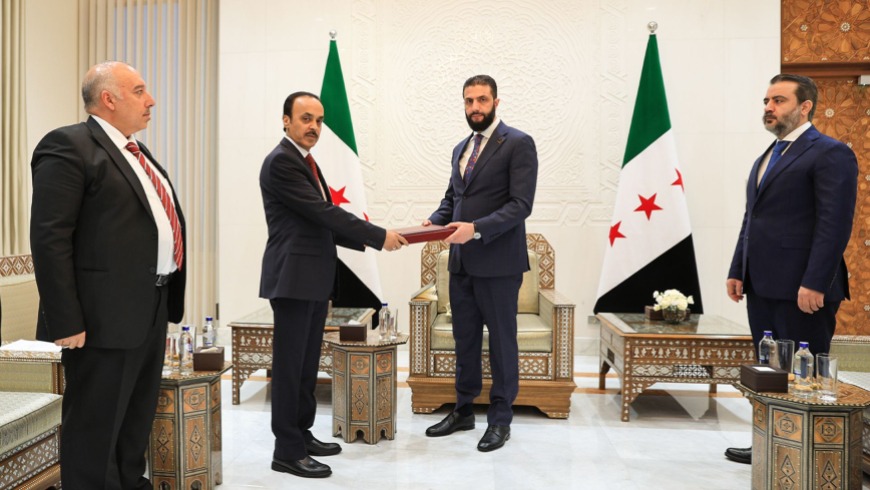Syrian President Ahmad al-Sharaa received today, Sunday, the final report of the National Independent Commission investigating the events that took place in Syria’s coastal region earlier this year, marking the conclusion of the commission’s mandate.
According to a statement from the Syrian presidency, the report was submitted in full by the independent committee tasked with uncovering and examining the incidents that occurred in early March in the coastal areas.
The statement emphasized that the formation of this committee was part of a broader national effort “to ensure that violations and attempts to obscure the truth have no place in Syria’s future—whether in relation to the coastal events or other incidents across the country, from north to south.”
The presidency expressed its appreciation for the “dedicated efforts” of the commission members, affirming that it will review the findings thoroughly and with the utmost care. The aim, the statement added, is to take appropriate steps that promote truth, justice, and accountability, and to prevent the recurrence of such violations as Syria continues its path toward rebuilding.
In recognition of the Syrian people’s right to truth, the presidency also called on the commission—should it deem it appropriate—to hold a press conference to present its key findings and methodology in a manner that honors the dignity of the victims and protects both judicial integrity and evidentiary safeguards. This conference is expected to be held at the earliest practical opportunity.
Background on the Commission
President Sharaa established the commission in March 2025 to investigate the deadly events of March 6 in Syria’s coastal region. The body was initially given thirty days to submit its findings to the presidency.
The commission includes a panel of judges, legal and security experts: Judge Jumaa al-Dubais al-Enezi, Judge Khaled Adwan al-Helou, Judge Ali al-Naasan, Judge Alaa al-Din Youssef Latif, Judge Hanadi Abu Arab, Brigadier General Awad Ahmad al-Ali, and attorney Yasser al-Farhan.
Under its mandate, the commission was tasked with uncovering the causes and circumstances of the events, investigating violations against civilians, identifying those responsible, and probing attacks on public institutions, security forces, and army personnel—with the aim of referring all perpetrators to the judiciary.
Following the initial thirty-day deadline, President Sharaa issued a decree extending the commission’s mandate for a non-renewable three-month period, responding to a formal request from the commission.
In an earlier statement to Syria TV, commission spokesperson Yasser al-Farhan noted that the initial timeframe had proven insufficient to complete the investigation comprehensively, necessitating the extension.
Documented Casualties and Findings
The Syrian Network for Human Rights (SNHR) previously reported, in its latest tally dated April 16, the deaths of 1,662 individuals during the coastal region events. Of these, 1,217 were killed by forces involved in the military operation, including 51 children, 63 women, and 32 medical personnel. The remaining 445 were killed by remnants of the former regime during their armed rebellion, among them 231 civilians and 214 members of the public security forces.
The SNHR emphasized that the victims of pro-government forces included not only civilians but also disarmed elements of the former Assad regime. It noted that many of the killings were carried out by military factions that had recently been integrated into the General Security Administration.
This article was translated and edited by The Syrian Observer. The Syrian Observer has not verified the content of this story. Responsibility for the information and views set out in this article lies entirely with the author.


